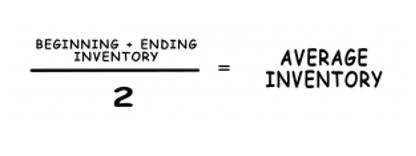
An accountant might be part of a larger accounting firm or an accounting department within a company or have their own independent practice. Accounting programs generally cover core topics such as financial accounting, managerial accounting, auditing, and taxation, providing students with exposure to key concepts and practices used in the field. Some programs may also include coursework related to specialized areas like forensic accounting, international financial reporting, government accounting, or nonprofit financial management. The role of a Certified Public Accountant, or CPA, is to act as a financial consultant or advisor to individuals and businesses on issues like tax compliance and business planning.
Limitation of Accounting

Those with five to seven years of experience can expect an average median salary of $73,100. Finally, accounting professionals with ten plus years experience can earn up to $121,200 per year. Remote accountants help growing businesses implement scalable systems for financial reporting, forecasting, and internal controls.
Scalable Support for Business Growth

For example, knowledge of blockchain technology could soon become a significant asset in accounting. By embracing technology, accountants can not only manage data more effectively but also adapt to changing demands in the profession. Accountants must be familiar with what is an accountant various accounting software and technology tools to manage financial data effectively.

What Skills, Qualifications and Certifications Should a Remote Accountant Have?
HKICPA terminated all recognition of overshare bodies in 2005 for accreditation under professional accountants ordinance. In Hong Kong, the accountancy industry is regulated by Hong Kong Institute of Certified Public https://salonlfc.com/what-is-book-closing-and-how-does-it-work-in/ Accountants(HKICPA) under the Professional Accountants Ordinance (Chapter 50, Laws of Hong Kong). The auditing industry for limited companies is regulated under the Companies Ordinance (Chapter 32, Laws of Hong Kong), and other ordinances such as the securities and futures ordinance, the listing rules, etc. A PA’s ability to practice out of state is very limited due to most states having phased out the PA designation. While most states no longer accept new PA license applicants, four states still accept PA applicants for practice privileges within the state.
Communication Skills

While financial statements are for external use, they may also be for internal management use to help make decisions. Technology streamlines accounting processes by automating tasks like data entry, reconciliations, and financial reporting. Cloud-based software allows real-time access to financial data, improving accuracy and collaboration. These standards help maintain consistency and reliability in financial reporting.
- In Sri Lanka, a chartered accountant must be a member of the Institute of Chartered Accountants of Sri Lanka (designatory letters ACA or FCA).
- It’s important to be aware that additional exams and/or professional certifications may be required to specialize within a certain field.
- By grasping the range of roles and their importance, you cultivate a greater appreciation for the financial health of businesses and individuals alike.
- As a result, accounting personnel have become a ubiquitous part of the business, with modern accounting software playing a crucial role in streamlining financial management and compliance.
- They should also be familiar with software applications and computer systems to manage financial data and generate reports.
- Professionals working in multinational settings may encounter both GAAP and IFRS standards, depending on the regions in which they operate.
- Whether you’re hiring locally or exploring remote options, offshore talent agencies like Pearl Talent can streamline the process by connecting you with vetted accounting professionals worldwide.
Businesses and individuals must navigate a complex web of tax regulations to avoid penalties and optimize their financial position. Accountants ensure tax filings are accurate, timely, and aligned with the latest laws. The U.S. tax code, governed by the Internal Revenue Service (IRS), undergoes frequent updates, impacting deductions, credits, and reporting requirements. For instance, the 2024 corporate tax rate remains at 21%, but changes to Section 179 now allow businesses to expense up to $1.22 million in qualifying asset purchases, reducing taxable income significantly. The balance sheet details a assets = liabilities + equity company’s assets, liabilities, and equity at a specific point in time.

The International Financial Reporting Standards (IFRS) provide a global framework for preparing financial statements, enhancing transparency and comparability. It communicates the monetary activities of an organisation to buyers, regulators, and bosses. By imparting insights into profitability, cash flow, and economic stability, Accounting empowers businesses to strategise, grow, and remain compliant with legal requirements. It is a necessary tool for developing trust and lengthy-term achievement. Today’s accountants are way more than number crunchers—think of them as financial weather people.
Who needs an accountant or accounting department?
- In particular, the CPA is highly respected and gives an accountant more credibility within the industry.
- Accountants are critical to financial health and stability, offering essential financial information and advice to support effective decision-making.
- Accountants can perform internal audits, which are meant to provide insights to a company on its accounting and record-keeping practices and to verify the accuracy of financial statements.
- This certification reflects not only technical skill but also a commitment to ethical standards and ongoing education.
- From the type of accountant you choose to become to the type of organization you choose to work for, there are plenty of accounting niches to explore—and lot of room to move around once you get started.
That means most bachelor’s degree holders need additional credit hours before sitting for the Uniform CPA Examination, which covers regulations, accounting practices, auditing and reporting. Fluency in industry-standard accounting tools like QuickBooks, Xero, or Sage is essential. A remote accountant should navigate these platforms efficiently to manage bookkeeping, generate reports, and streamline workflows from any location.
- Accounting designed or meant for outsiders is known as financial accounting.
- These platforms categorize transactions, reconcile bank statements, and generate reports that help businesses track cash flow.
- With these emerging technologies, labor-intensive tasks like tax preparation, payroll, and audits can be automated to reduce the amount of time and resources needed to move forward.
- Accountants use these abilities—plus knowledge gained through college-level accounting programs—to provide financial services to businesses and individuals.
- The accounting profession encompasses a wide range of specialisations, including public accountants, management accountants, forensic accountants, tax accountants, and auditors.
- Accountants analyze the flow of cash through your business to improve operations.
An investment accountant, or financial accountant, typically works for employers like brokerage firms and portfolio managers. Investment accountants track and analyze investment activities and opportunities, empowering businesses to manage stocks, bonds, and other investments more effectively. If you’ve ever considered a career in accounting — or, even if you haven’t — continue reading to learn more about this profession and whether it could make a good fit for your skills and interests.
